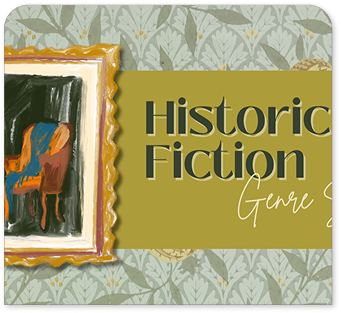-
Mon-Fri: 10AM to 8PM 01722665665
-
My Account
-
-
0
Total :
₹ 0.00

Indian Government and Politics by Dr. Kanwalpreet and Dr. Amandeep Kaur, published by Vohra Publishing House, is an essential textbook for BA 3rd Semester Political Science students at Panjab University, Chandigarh. Written in Hindi, it covers key topics such as the Indian Constitution, Centre-State relations, Fundamental Rights, and more. The book includes detailed explorations of parliamentary structures, state governance, and judicial powers. Featuring exam-focused materials like model questions and past papers, it is an invaluable resource for Hindi-speaking students aiming to excel in their political science studies.
The book covers a wide range of topics, including the basic features of the Indian Constitution, fundamental rights and duties, the structure and functioning of the central and state governments, and judicial powers. It also includes a special section for GNDU students on the socio-economic basis of the Indian Constitution.
This book is primarily presented in Hindi, designed to cater specifically to Hindi-speaking students. However, it is also available in English and Punjabi versions, ensuring that a wider range of students can benefit from its comprehensive insights into Indian Government and Politics. You can choose the language version that best suits your preferences!
Yes, there is an exclusive section addressing the socio-economic basis of the Indian Constitution, enhancing the relevance of the content for GNDU students.
To assist in exam preparation, the book includes short-answer type questions and previous university papers. This facilitates practice and helps students become familiar with the exam format.
Yes, the book simplifies complex Western political cases related to political science, making them more understandable for students, thus enriching their comparative analysis skills.
The book is authored by respected scholars Dr. Kanwalpreet and Dr. Amandeep Kaur, who have expertise in Political Science and are knowledgeable about the Indian political landscape, making them well-qualified to write this comprehensive analysis.
The book is organized into units, each focusing on specific themes of Indian Government and politics, including foundational concepts, rights and duties, central governance mechanisms, and state governance structures.
While the book provides a robust foundation in Indian political structures and functions, it encourages students to critically engage with current trends and issues in Indian politics as part of their broader learning experience.
The authors employ clear language and contextual examples to explain complex political concepts, alongside simplified case analyses, making it easier for students to grasp intricate ideas.
The book includes short-answer type questions and sample papers at the end of each unit, which serve as supplementary material to reinforce learning and prepare for examinations effectively.
Unit-1
1.Basic features of the indian constitution
2.Preambe of the indian constitution
3.Nature of federalism
4.Centre state relations or relation between union and states
Unit-2
1.Fundamental rights
2.Fundamental duties
3.Directive principle of state policy
Unit-3
1.Office of the president
2.Parliament-composition,powers and roles
3.Legislative procedure&parliamentary committees
4.Indian cabinet and the office of the prime minister
5.Supreme court of india-powers and postions
Unit-4
1.Governor:appointment,powers and role
2.State legislative-compostion,functions and role
3.State council of ministers and chief minister
4.High court
A.The socio economic basis of the indian constitution(only for G.N.D.U.)
B.Western cases in easy language
Short answer type question
University paper
Political science
Semester-3
Max. Marks: 100
Theory: 90
Internal Assessment: 10 Marks
Time: 3 Hours
Unit-1
1.Basic Features of Indian Constitution.
2.Preamble and its Perceptions.
3.Indian Federalism- Meaning & its features.
4.Centre State Relations(Legislative,Administrative & Financial)
Unit-2
1.Fundamental Rights(Art 14-Art 32)- Meaning,Explanation,Criticism & Importance.
2.Fundamental Duties- Meaning,Explanation,Evaluation(Criticism & Importance).
3.Directive Principles of state policy(Art 36-Art 51)-Liberal,Socialist,International,Gandhian Meaning,Explanation,Sanctions,Criticism & importance.
Unit-3
1.President:Election,powers,position and changing role.
2.Parliament:Composition,powers and role.
3.Cabinet-
a)Parliamentary features
b)Prime Minister: Election,powers,position and changing role.
Unit-4
1.Governor: Appointment,powers and role.
2.State Legislature: Composition, powers and role of Legislative Assembly/Vidhan Sabha.
3.Council of Ministers and Chief Minister: Election,powers,Position and role.
4.High Court: Composition.powers and its role.
Unit-1
1.Basic features of the indian constitution
2.Preambe of the indian constitution
3.Nature of federalism
4.Centre state relations or relation between union and states
Unit-2
1.Fundamental rights
2.Fundamental duties
3.Directive principle of state policy
Unit-3
1.Office of the president
2.Parliament-composition,powers and roles
3.Legislative procedure&parliamentary committees
4.Indian cabinet and the office of the prime minister
5.Supreme court of india-powers and postions
Unit-4
1.Governor:appointment,powers and role
2.State legislative-compostion,functions and role
3.State council of ministers and chief minister
4.High court
A.The socio economic basis of the indian constitution(only for G.N.D.U.)
B.Western cases in easy language
Short answer type question
University paper
The book covers a wide range of topics, including the basic features of the Indian Constitution, fundamental rights and duties, the structure and functioning of the central and state governments, and judicial powers. It also includes a special section for GNDU students on the socio-economic basis of the Indian Constitution.
This book is primarily presented in Hindi, designed to cater specifically to Hindi-speaking students. However, it is also available in English and Punjabi versions, ensuring that a wider range of students can benefit from its comprehensive insights into Indian Government and Politics. You can choose the language version that best suits your preferences!
Yes, there is an exclusive section addressing the socio-economic basis of the Indian Constitution, enhancing the relevance of the content for GNDU students.
To assist in exam preparation, the book includes short-answer type questions and previous university papers. This facilitates practice and helps students become familiar with the exam format.
Yes, the book simplifies complex Western political cases related to political science, making them more understandable for students, thus enriching their comparative analysis skills.
The book is authored by respected scholars Dr. Kanwalpreet and Dr. Amandeep Kaur, who have expertise in Political Science and are knowledgeable about the Indian political landscape, making them well-qualified to write this comprehensive analysis.
The book is organized into units, each focusing on specific themes of Indian Government and politics, including foundational concepts, rights and duties, central governance mechanisms, and state governance structures.
While the book provides a robust foundation in Indian political structures and functions, it encourages students to critically engage with current trends and issues in Indian politics as part of their broader learning experience.
The authors employ clear language and contextual examples to explain complex political concepts, alongside simplified case analyses, making it easier for students to grasp intricate ideas.
The book includes short-answer type questions and sample papers at the end of each unit, which serve as supplementary material to reinforce learning and prepare for examinations effectively.
Political science
Semester-3
Max. Marks: 100
Theory: 90
Internal Assessment: 10 Marks
Time: 3 Hours
Unit-1
1.Basic Features of Indian Constitution.
2.Preamble and its Perceptions.
3.Indian Federalism- Meaning & its features.
4.Centre State Relations(Legislative,Administrative & Financial)
Unit-2
1.Fundamental Rights(Art 14-Art 32)- Meaning,Explanation,Criticism & Importance.
2.Fundamental Duties- Meaning,Explanation,Evaluation(Criticism & Importance).
3.Directive Principles of state policy(Art 36-Art 51)-Liberal,Socialist,International,Gandhian Meaning,Explanation,Sanctions,Criticism & importance.
Unit-3
1.President:Election,powers,position and changing role.
2.Parliament:Composition,powers and role.
3.Cabinet-
a)Parliamentary features
b)Prime Minister: Election,powers,position and changing role.
Unit-4
1.Governor: Appointment,powers and role.
2.State Legislature: Composition, powers and role of Legislative Assembly/Vidhan Sabha.
3.Council of Ministers and Chief Minister: Election,powers,Position and role.
4.High Court: Composition.powers and its role.


